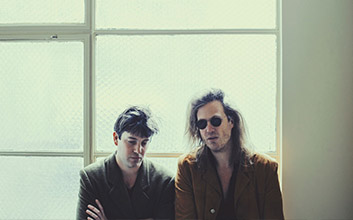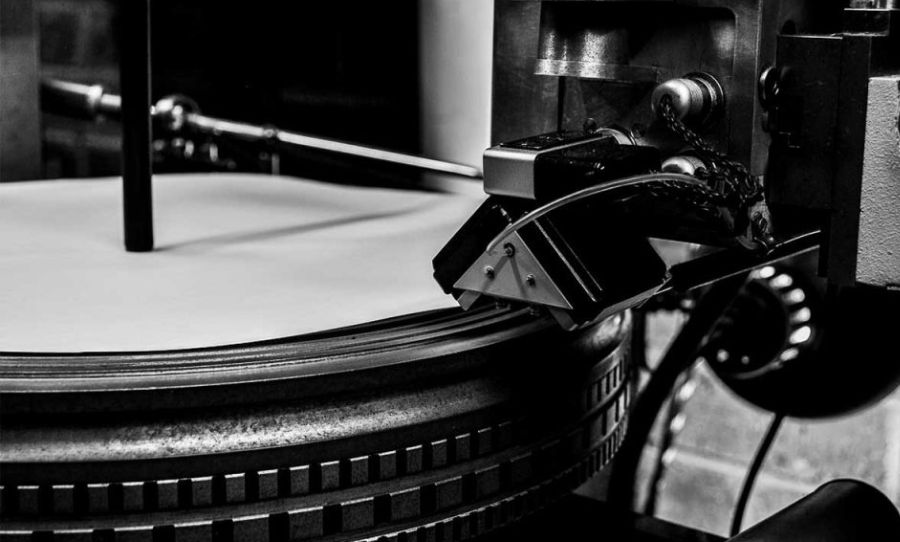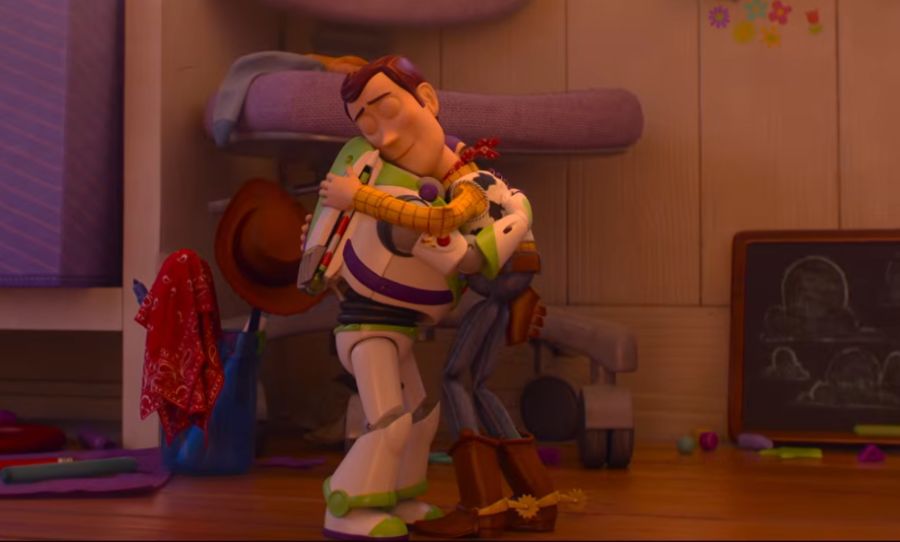This article appears in print in Happy Mag Issue 9. Grab your copy here.
Tim Rogers (the artist known as Jack Ladder) and Oh Mercy‘s Alex Gow have reached a point that only a small percentage of artists persevere to reach: they’ve built a legacy. In ways they are quite similar; both are solo artists that cloak themselves with a mysterious moniker. Both have released five studio albums, each of which has stirred keen interest across the country and beyond in their own distinct ways. And both are at a point where, a decade or so down the track, they’re reflecting and what they’ve done and the artists they’ve become.
They’re also fast friends. Jack Ladder is currently wrapping up a short but special string of shows in support of his tremendous new album, Blue Poles, on which he invited Gow to be his right-hand man. This week, they’ll be hitting the Factory Theatre in Sydney for the final show of the tour. But before they hit the road, we invited Rogers and Gow to sit behind the cold blue light of their computers to talk about making records, artistic persistence and the perfect sport over emails – the way good friends do.
Here’s how it went down.
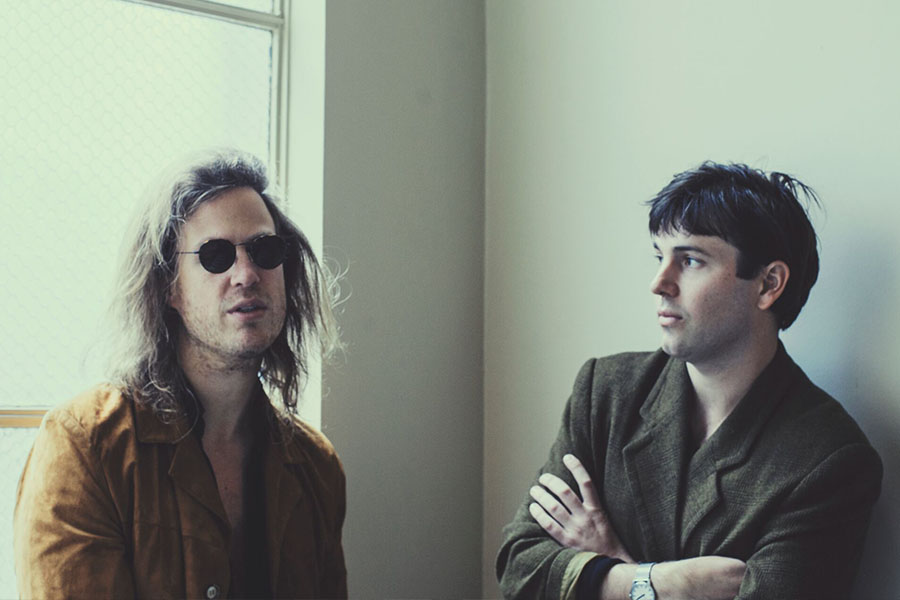
Jack Ladder and Oh Mercy’s Alex Gow discuss songwriting and making records, balancing style and substance, and finding comfort in giving up.
JACK LADDER: Alex, we’ve been in this game for a second now (about 10-plus years) and I think we’ve arrived at a similar point. You talk about becoming comfortable with making music and being yourself. How has it come to this? Is this kind of feeling or approach sustainable?
ALEX GOW: Hi Tim, thanks for organising this. I love your music and I’m happy to interview you. Don’t edit that out! Well, on a good day I’d say the comfortability factor comes from a deeper understanding of the kind of bloke I am. The comfort that comes with moving out of my twenties and not having to be regularly disappointed with myself for being a selfish arsehole. And an understanding of what makes my songs worthwhile. An understanding that I’ll never write my Born Sandy; the realisation that I did make a few admirable career moves; motivated by lofty ideas about art. That I recorded some great and unique songs, the kind nobody else could have written or sung or arranged like I did.
All of that empowered and enabled me to write with vigour and play the guitar with a playful recklessness. To make most of the album on my own. Then I whacked on some jim jams, threw my arms into my leather jacket, sucked down a lung full of Ventolin, and said, “this is me, this is the deal, I try hard and I care, take the picture”. On a bad day, I’d say I’m comfortable because I’ve given up.
Tim, let me return serve. You’ve just released the fantastically titled, Blue Poles. An excellent collection of Jack Ladder songs. Where are you on the comfort scale? Sometimes I worry that being comfortable is the death of good art.
JACK LADDER: That makes sense. You’ve written some classic songs that stand up on their own. You wear a leather jacket and suck on Ventolin with the best. I’m down with that.
I can say that I’m feeling comfortable now. I have a new record out and it’s creeping up the Australian independent charts. I have some new pants that I feel accentuate the shape of my leg and I’m about to do a tour with a shit hot band.
I think the confidence comes from taking control of the process. Some singsongers get fixated that they don’t want to know how to use the technology. That it gets in the way of the process. I think it makes the whole affair much more personal and helps communicate an unfiltered perspective. Especially if you’re just figuring it out and making lots of mistakes.
Actually, I think it’s the mistakes. Mistakes and failing. Failing over and over again in all aspects of your life and not dying or killing yourself, I think leads to a certain type of confidence that you can take comfort in. I also understand that failing is a privilege I’ve been allowed and I consider myself very lucky for it.
But when the record was finished no one wanted to touch it. It sat on ice for 12 months, which allowed for me to love it, hate it and come back around again. In the meantime, I went on tour with friends across America and Europe twice and saw the situation from a better perspective.
I feel comfortable now but I don’t think it’s sustainable. I’m open to the elements.
On your new album, I’m envious of the song Restless Woman. I think it’s such a beautiful and true song it makes me wanna cry just thinking about it. I wish I wrote it. That and National Park are a pair of aces on the record. Are they supposed to work as a pair?
ALEX GOW: Tim, thanks for the kind words. Restless Woman was an 11th-hour tune for Café Oblivion. Wrote the lyrics in the toilet at the pub. National Park I wrote over a breakfast buffet at a fancy Sri Lankan hotel.
Tell me a few things.
Pinpoint the bit of music on Blue Poles that you are most proud of.
JACK LADDER: I enjoy the opening 3 chords of the first song Can’t Stay. Pretty unusual, unsettling. It felt like starting the album with a declaration of “I don’t know anything.” I also like the improvised ending of that track. Sets a nice loose tone for the album.
ALEX GOW: Tell me a little bit about the song that was the most difficult to record.
JACK LADDER: White Flag was difficult in that I had strong feelings towards the melody but had no idea what to do with it rhythmically. I had trouble writing the song to start with because I didn’t want to write it. In a meta way, I had to surrender to finishing it in the first place.
It was originally a piano ballad with a kick drum and me singing high backing vocals in the chorus. First time I’ve ever done that. When we recorded all the other songs it stuck out in a bad way. It definitely wasn’t anything I would want to listen to. Towards the end of the session, I asked if Larry and Donny could just lay down that kind of groovy country feel over the top of the stilted MIDI piano track. They did one take and that’s what you hear.
ALEX GOW: Tell me what 18 year old Tim might have thought of Blue Poles.
JACK LADDER: I’d like to think he’d be open to it. Probably wouldn’t be his favourite. I didn’t like much music with singing at that age. It has ingredients of things I liked as a kid. Herbie Hancock. Jazz. Weird whole tone scales.
ALEX GOW: Which song almost didn’t make it?
JACK LADDER: A lot didn’t make it. This is what was left. It wouldn’t work without any of these tracks for me. The other songs were deep endless grooves. With me mumbling over the top. They’re locked up in the vault.
ALEX GOW: Please reveal an alternate album title.
JACK LADDER: One morning out driving I remember driving around a roundabout and I declared to my partner the record would be called Fart Time. I got a few laughs outta that.
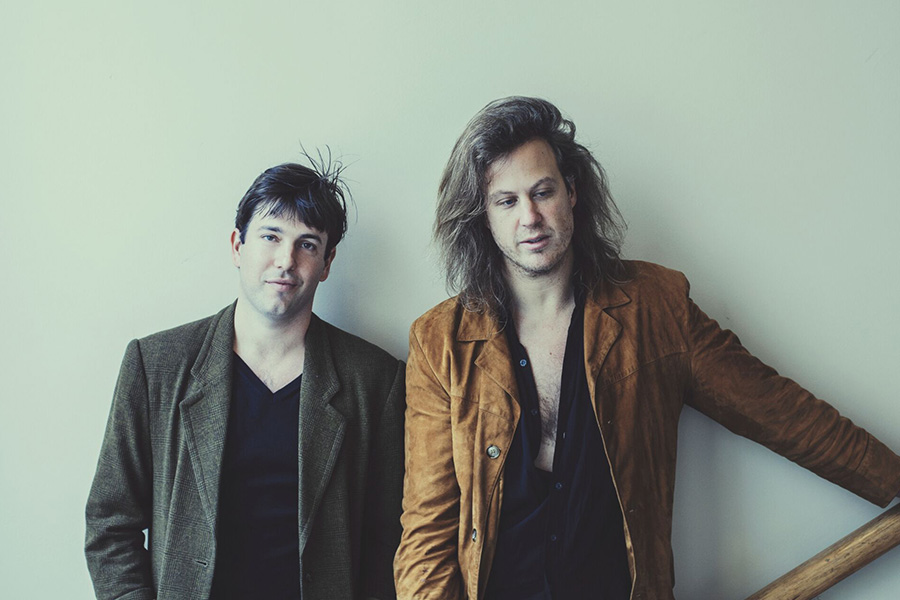
ALEX GOW: If you had to pick one tune off Blue Poles to play to your great grandkids, which one, why?
JACK LADDER: I wonder if the music our great grandkids listen to will resemble anything like these kinds of songs. I would play them Susan and then I would disappear into the light.
I’d like to ask you about cricket and how that has influenced your music. I never had any interest in it. I’m looking for a sport I can get behind. I haven’t had a lot of sport in my life so far. I feel like I’m missing something.
ALEX GOW: Cricket. Hmm. I grew up with it. That makes a difference. Played street cricket or footy most evenings with the neighbours after school. It’s been a part of my summer for 30 years. The commentary. The howzat. I bowl leg spin. It’s like chess. You set ‘em up. Take a few blows then your mate with the gloves on whips off the bails and they’re gone.
I like to write music after exercise and a latte. I got a lot of songs made after cricket. You’ve got plenty of time to think about ‘em when you’re out in the field doing f-all for hours. The cricket was on the telly during my home recording sessions. It was on at The Grove. I love it. Donny and Lawrence love it too. It might be the perfect sport for you. You can leech off your mate’s ecstasy and eventually you might find yourself in deep. Do you go for jogs?
JACK LADDER: I missed the cricket thing and now I remember I got hit in the balls first time I tried batting and never went back for more. I spent the best part of being a kid swimming and surfing at the beach. Also lots of time for reflective thought.
ALEX GOW: Tim, all of your albums have an identifying ‘sound’; an aesthetic. How important is it to you not to repeat those sonic landscapes? And do you keep an eye on it, making sure style doesn’t overtake substance (something I’d say you manage very well)?
JACK LADDER: I’m glad you think I’m managing the style over substance equation. The main part is to always at the core have a song or an idea. A few times I have tried to reheat an old song or a half malformed song with production and they’re always my most disappointing moments. A really pointless exercise.
I think about making records like movies. Locations, characters, lighting, wardrobe. And the songs are different scenes. You put a bunch of them together and they start to rub against each other and become something new. I find it hard releasing singles because the way I think about albums is that you need to hear it all together for it to make any sense.
In that way, each record has a different location and a different story to tell. I really wanted to avoid the typical band narrative where you pursue a distinct sound and get bigger and bigger and more two dimensional until you don’t need to write songs anymore, the sound becomes the songs. I don’t like that and I saw that wasn’t going to be the way I would work.
Also because each record moves on it’s about finding new worlds to inhabit. I could be blamed for being a tourist as I travel between sounds. But sounds aren’t the most important things to me. Songs are always first.
Thanks for doing this. I think that’s about all we have time for.
This article appears in print in Happy Mag Issue 9. Grab your copy here.
